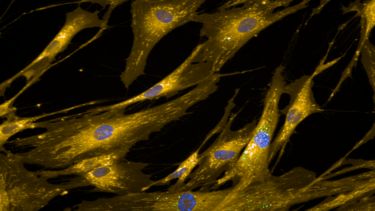Rare Disease
One in 17 people will be affected by a rare disease at some point in their lifetime. This equates to nearly 1 million children in the UK. Rare disease research aims to improve awareness, diagnostics, access to treatment and outcomes for these children.

Suggested areas of interest include but are not limited to:
- Disease discovery;
- Increased awareness of rare diseases;
- Role of screening;
- Improved diagnostics;
- Novel therapies and cures;
- Impact on Quality of Life on living with a rare disease.
Please complete this to register to be a member of the Rare Disease theme.
If you'd like your research to be featured on this page, email us at scypher@sheffield.ac.uk.
Theme Coordinators
Consultant Paediatrician at 91Ě˝»¨ Children's Hospital
Contact: benjamin.shillitoe@nhs.net
Research spotlight
The UKPID (Primary Immunodeficiency) registry is a national UK registry of patients with inborn errors of immunity led by Dr Ben Shillitoe. It is part of the wider European Society for Immunodeficiency registry (ESID). It aims to collect clinical data on patients with these ultra-rare disorders in their immune system. This allows easier access of data to researchers and commercial partners to improve outcomes for these patients.
The registry has over 6000 patients recruited, and regularly publishes research directly from the registry and that from research collaborators.
Dr Meena Balasubramanian conducts in order to shape diagnostic and clinical practice. Her research into Osteogenesis Imperfecta (OI) has transformed diagnostic pathways nationally for patients with OI with early confirmatory genetic diagnosis, shortening diagnostic times and ensuring early diagnosis and institution of treatment and follow-up in specialist centres.
As the Clinical Director for Research at 91Ě˝»¨ Children’s Hospital, Dr Meena oversees a large portfolio of clinical research.


